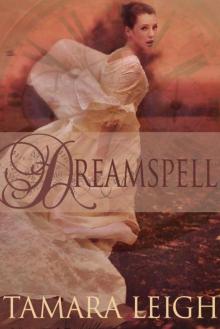- Home
- Tamara Leigh
Lady Of Eve
Lady Of Eve Read online
Contents
Title Page
Tamara Leigh Novels
Copyright Page
Chapter One
Chapter Two
Chapter Three
Chapter Four
Chapter Five
Chapter Six
Chapter Seven
Chapter Eight
Chapter Nine
Chapter Ten
Chapter Eleven
Chapter Twelve
Chapter Thirteen
Chapter Fourteen
Chapter Fifteen
Chapter Sixteen
Chapter Seventeen
Chapter Eighteen
Chapter Nineteen
Chapter Twenty
Chapter Twenty-One
Chapter Twenty-Two
Chapter Twenty-Three
Chapter Twenty-Four
Chapter Twenty-Five
Chapter Twenty-Six
Chapter Twenty-Seven
Chapter Twenty-Eight
Chapter Twenty-Nine
Chapter Thirty
Chapter Thirty-One
Chapter Thirty-Two
Epilogue
Excerpt: Dreamspell
Tamara Leigh Novels
About The Author
LADY OF EVE
A “clean read” rewrite of Virgin Bride, published by Bantam Books, 1994
TAMARA LEIGH, USA Today Best-Selling Author
FALLEN
On the eve of her profession as a nun, Lady Graeye Charwyck is called home to Medland by the father who disavowed her years earlier for the “devil’s mark” she bears. Desperate to escape the convent, she agrees to wed a man she detests to provide an heir for her family’s holdings. But when the king declares the Charwyck lands forfeit and awards them to their enemy, Graeye once more finds herself discarded. Grieved by her father’s plans to return her to the convent, she yields to impulse and casts aside her virtue, only to discover that the knight with whom she sinned is the new lord of Medland.
RELENTLESS
Baron Gilbert Balmaine is a man nearly eaten through with desire to see the end of the Charwyck line for all the ills the family has visited upon his own. With the heir dead, the only remaining survivor too aged to beget another, and their lands forfeited for the atrocities committed against the Balmaines, light lies ahead—until Gilbert learns there is a daughter. And his world darkens further when he realizes she is the one who, on a starry night, tempted him past temptation. Certain she intended to trap him into marriage, he vows he will not rest until she is back within the walls of her abbey. Now if only he can forget her… If only that night did not have such far-reaching consequences…
TAMARA LEIGH NOVELS
INSPIRATIONAL TITLES
Age of Faith: A Medieval Romance Series
The Unveiling: Book One, 08/12: Amazon, B&N, iBooks Store, Kobo Books
The Yielding: Book Two, 12/12: Amazon, B&N, iBooks Store, Kobo Books
The Redeeming: Book Three, 05/13: Amazon, B&N, iBooks Store, Kobo Books
The Kindling: Book Four, 11/13: Amazon, B&N, iBooks Store, Kobo Books
The Longing: Book Five, 04/14: Amazon, B&N, iBooks Store, Kobo Books
Southern Discomfort Series
Leaving Carolina, RandomHouse/Multnomah, 2009
Nowhere, Carolina, RandomHouse/Multnomah, 2010
Restless in Carolina, RandomHouse/Multnomah, 2011
Stand-Alone Novels
Stealing Adda, 05/12 (ebook edition) Amazon, B&N, iBooks Store, Kobo Books
Stealing Adda, NavPress, 2006 (print edition)
Perfecting Kate, Multnomah, 2007
Splitting Harriet, RandomHouse/Multnomah, 2007
Faking Grace, RandomHouse/Multnomah, 2008
“CLEAN READ” TITLES
Dreamspell: a medieval time travel romance, 03/12: Amazon, B&N, iBooks Store, Kobo Books
Lady At Arms: a “clean read” rewrite of the 1994 Bantam Books bestseller Warrior Bride, 01/14: Amazon, B&N, iBooks Store, Kobo Books
Lady Of Eve: a “clean read” rewrite of the 1994 Bantam Books bestseller, Virgin Bride, 06/14: Amazon, B&N iBooks Store, Kobo Books
OUT-OF-PRINT GENERAL MARKET TITLES
Warrior Bride, Bantam Books, 1994
*Virgin Bride, Bantam Books, 1994
Pagan Bride, Bantam Books, 1995
Saxon Bride, Bantam Books, 1995
Misbegotten, HarperCollins, 1996
Unforgotten, HarperCollins, 1997
Blackheart, Dorchester Leisure, 2001
*Virgin Bride is the sequel to Warrior Bride
Pagan Pride and Saxon Bride are stand-alone novels
www.tamaraleigh.com
LADY OF EVE (a “clean read” rewrite of the 1994 Bantam Books bestseller Virgin Bride) Copyright © 2014 by Tammy Schmanski, P.O. Box 1298, Goodlettsville, TN 37070, [email protected]
This novel is a work of fiction. Names, characters, places, incidents, and dialogues are either the product of the author’s imagination or are used fictitiously. Any resemblance to actual events, locales, organizations, or persons, living or dead, is entirely coincidental and beyond the intent of the author.
ISBN-10: 0-9853529-7-4
ISBN-13: 978-0-9853529-7-4
All rights reserved. This book is a copyrighted work and no part of it may be reproduced, stored, or transmitted in any form or by any means (electronic, mechanical, photographic, audio recording, or any information storage and retrieval system) without permission in writing from the author. The scanning, uploading, and distribution of this book via the Internet or any other means without the author’s permission is illegal and punishable by law. Thank you for supporting authors’ rights by purchasing only authorized editions.
Cover Design: Ravven
CHAPTER ONE
Arlecy Abbey, England
Early Autumn, 1156
Of what benefit was it to be a vision in virginal white if one’s groom was not of one’s choosing?
Hoping to calm her racing heart, Lady Graeye Charwyck lifted a hand and pressed it to her chest. She loved the Lord, but she did not believe He was any more pleased to have her as His bride than she was to have Him as her groom. If what she had been taught was true, He knew her heart. He knew she did not want this. He knew there was no worth—nothing precious—in vows grudgingly given.
“Dear Lord,” she breathed and lowered her chin to stare at the toes of her shoes peeking from beneath the skirts of her bridal habit.
“Be still!” the novice mistress snapped, jolting her charge’s slender frame.
Graeye lifted her head, stiffened her spine with well-learned obedience, and sighed—a lack of deference for which she immediately repented. Though not of late, she had more than once felt the sting of Mistress Hermana’s strap, for that part of her spirit which had not been broken picked the most inopportune times to declare that this life was not of her choosing. Of the three vows she was about to take, obedience would be the most difficult to keep.
Digging her short nails into her palms, she slid her gaze up the black-clad woman. She need not have gone farther than that square, unmoving chin to know of the novice mistress’s displeasure, but she did.
With a snort of disapproval, Hermana reached forward and tugged on the wimple where it passed beneath Graeye’s chin up to the stiffened band around her forehead.
Heart sinking further, Graeye lowered her eyes. Over the years, she had become painfully accustomed to such ministrations—a vain attempt to conceal the faint stain marring the left side of her face. Starting just shy of her eyebrow, the mark faded back into the hairline at her temple. Though it was not very large or conspicuous, it might as well have covered her entire face.
The mark of the devil, Hermana called it. Always, the devi
l in Graeye was responsible for the trouble she got herself into. What would otherwise have been viewed as simple, childish pranks or the foolishness of youth, the superstitious woman attributed to evil. When other novices skipped matins or devised tricks against one another, their punishment was a verbal reprimand and prayers of repentance. For Graeye, it was that and more—a strap across the back, hours on her knees scrubbing floors and pulling weeds, humiliation before her peers.
Though she did not believe the devil was responsible for her penchant for trouble, she knew well the curse her physical flaw afforded her. It was, after all, the shape of her destiny thus far.
Her father, unable to bear the sight of her, had dedicated her to the Church when she was seven, only days following her mother’s death. The handsome dowry he had provided the convent at Arlecy had ensured her acceptance no matter what mark she bore. And no matter her own feelings. Now she was to wed—not to a mortal as she might have wished, but to the Church.
On this, the day of her Clothing, she would become a nun, her profession made, blond hair sheared, a black habit her only garment. It burdened her, but still there was a blessing in it, for her passage into sisterhood would finally free her from Hermana’s dominance. Though the woman was not a nun, for she had once been wed and her chastity forever lost, she had held the esteemed position of novice mistress for as long as Graeye could remember.
Now Graeye would have a kinder master to serve—the Lord.
If only I could rejoice in that and be content, she whispered into herself.
When the strains of music sounded from the chapel, indicating the commencement of the ceremony, Hermana said, “Eyes forward!”
Graeye began a mental recitation of her prayers—not those devised for a novice preparing to take the veil, but her own pleading that she be freed from this obligation.
Minutes later, the large oaken doors to the chapel groaned inward.
Graeye squared her shoulders and pressed her bouquet to her abdomen, gripping it so tightly her fingers crushed the delicate stems and leaves. But though she commanded her legs to take that first, fateful step forward, they would not.
As always, Hermana knew what to do—in this instance, a sharp elbow to the arm that would likely leave a bruise.
“Halt!” a gruff voice sliced the cool morning air.
As if joined, Graeye and the woman beside her turned to search out the man in their midst.
Though the half-dozen knights who emerged from between two of the outlying buildings came disarmed, as was the only permissible entrance to this holy place, a small group of clergy were vainly trying to halt their advance.
“You dare enter consecrated ground without permission?” Hermana demanded as she hurried forward into the intruders’ path.
“Forgive us,” a tall, thin knight said, though he sounded anything but repentant. He withdrew a rolled parchment from his belt and handed it to the novice mistress. “An urgent message from Baron Edward Charwyck.”
Graeye sucked in a breath. Had her letter of appeal to her father brought about a change of heart? Biting her inner lip so hard she tasted blood, she watched as Hermana turned to put the sun at her back to better read the missive.
The woman’s thick eyebrows drew closer, ever closer. Then she lifted her eyes and stared at her charge over the top of the parchment.
Suppressing the desire to wrap her arms around herself, Graeye shifted her gaze to the right. There, a young, fair-headed knight stood beside the messenger, eyes intent upon her. Self-consciously, she lifted a hand to the wimple to ensure the mark remained covered.
The crackle of parchment broke the silence, then Hermana traversed the stone walkway and ascended the steps to the chapel. The abbess stood at the top, having come outside to discover the cause for the delay.
The exchange between the two women was hushed. While the abbess, whom Graeye regarded with affection, mostly listened, Hermana grew increasingly agitated and began to gesticulate. The abbess raised a hand to quiet her, took the parchment, and examined it. Shortly, more words passed between the two, then the novice mistress descended the steps.
Venturing a look past the stern-faced woman approaching her, Graeye was startled by the abbess’s serene countenance. Though she could not be certain, she thought the woman’s mouth curved toward a smile.
Hermana halted before Graeye. “’Tis your brother, Philip,” she began, her voice strained as if with great emotion. “He is deceased.” As the words passed her thin, colorless lips, she crossed herself.
Graeye stared. Then, remembering herself, she also made the sign of the cross.
Philip dead.
She felt a flutter in her chest, but little else. Contrite that she could not be said to be grieved, she offered up a silent explanation for her un-Christian reaction. She had hardly known her half sibling, for he had been much older than she, and her few remembrances of him were seeped in pain.
As a child, she had seen little of Philip while he had been in training, first as a page, then a squire, at a neighboring barony. However, she had seen enough to dislike the loud, foul-mouthed boy with whom she shared a father. He had taunted her about her “devil’s mark” and played cruel pranks on her when he caught her out from behind her mother’s skirts.
God forgive her, but she could not mourn one whose memory dredged up old hurts, and whom she had not seen for nigh on eleven years. He was a stranger, and now would forever remain one. Still, she would pray for his soul.
“Your father has requested you attend him so that your brother may be given a proper burial,” Hermana went on, voice choked, eyes moist.
Graeye wondered at the woman’s peculiar behavior. She had never known the novice mistress to be capable of any deep emotion other than anger and displeasure.
“And as you are his only hope for a male heir,” she continued, “’tis not likely you will return to us.”
Leave Arlecy? Forever? Graeye’s heart swelled as she stared into that wizened face, her hand reflexively opening to release the ravaged bouquet to the stone-laid ground.
My prayers have been answered, she silently acknowledged. I am freed.
In the next instant, she suppressed the smile that tried to bend her mouth into a shape with which it was mostly unaccustomed. Why had God waited until the last moment to grant her desires? Had He been testing her? Had He—?
“You are to depart immediately,” Hermana said. “I will have your possessions packed and sent on later.”
“I must change,” Graeye whispered.
“Nay, you are to leave now so you might complete the journey ere nightfall.”
Graeye would not argue it. Atremble with excitement, she lifted the skirts of her bridal habit clear of her feet and walked quickly to the knight who had delivered the message.
He was much older than he had appeared from a distance. In fact, he looked well past two score years, every groove in his hard face stark against his chalky complexion.
“Lady Graeye,” he said, “I am Sir William Rotwyld, Lord of Sulle, vassal to Baron Edward Charwyck.” His eyes shone with a coldness she feared to fathom.
She inclined her head and clasped her hands before her. “Sir William.”
“Come.” He grasped her elbow. “Your father awaits you at Medland.”
Stealing a look behind, Graeye cast her gaze from Hermana to the abbess. This time, there was no doubt it was a smile that graced the latter’s face.
CHAPTER TWO
Medland, England
Mid-Autumn, 1156
A broom in one hand, a dirty rag in the other, Graeye took a rest from her labors to cast a critical eye over the hall. Through her efforts this past month, the castle had seen many changes inside and out, but none were as obvious as those found here.
Gone was the sparse, putrid straw that had covered the floor and upon which she had slipped on her first day at Medland. In its place were fresh rushes that smelled of sweet herbs. Immense networks of cobwebs and thick layers of dust ha
d been swept away. Tattered window coverings had been replaced with oiled linen that held back the night’s icy draught and let day’s light spill beams throughout. Trestle tables and benches that had threatened to collapse beneath a man’s weight had been repaired, though they did not look much better for all the effort. Even the threadbare tapestries had been salvaged by days of cleaning and needlework.
Still, no matter how hard she toiled, the donjon would never be grand, Graeye conceded with a wistful sigh. But at least it was more habitable than before. And she had the castle folk to thank for that. Despite her determination to set Medland right, she would have accomplished little without their aid.
It had taken persistence and a considerable show of interest in the reasons behind the sorry state of the demesne before the people had set aside their superstitions over the mark she bore and revealed what had transpired these past years.
Four years earlier, her father had relinquished the responsibility of overseeing Medland to Philip, and it had been a poor decision. Unconcerned for the welfare of his people, the young lord had squandered time and money.
By the second year, his neglect had led to diminished stores of food for the castle inhabitants. Hence, he had appropriated livestock and grain from the villagers to meet the demand within the walled fortress. That had weakened the once prosperous people and resulted in winter famine.
Philip had also been a cruel master, doling out harsh punishment for minor offenses and using his authority to gain the beds of serving wenches and village women. There were even whispered rumors that his cruelty had extended to the taking of lives when he was displeased—that his late wife had met her end by such means.

 FEARLESS: Book Two: Age of Conquest
FEARLESS: Book Two: Age of Conquest BOUNDLESS: A Medieval Romance (AGE OF CONQUEST Book 6)
BOUNDLESS: A Medieval Romance (AGE OF CONQUEST Book 6) Lady Betrayed
Lady Betrayed Merciless
Merciless Nowhere, Carolina
Nowhere, Carolina Virgin Bride
Virgin Bride Blackheart
Blackheart Restless in Carolina
Restless in Carolina THE AWAKENING_A Medieval Romance
THE AWAKENING_A Medieval Romance Baron of Blackwood
Baron of Blackwood Leaving Carolina
Leaving Carolina HEARTLESS: A Medieval Romance (Age of Conquest Book 4)
HEARTLESS: A Medieval Romance (Age of Conquest Book 4) Baron of Godsmere
Baron of Godsmere Lady Of Eve
Lady Of Eve LAWLESS: A Medieval Romance (AGE OF CONQUEST Book 7)
LAWLESS: A Medieval Romance (AGE OF CONQUEST Book 7) Lady Of Fire AKA Pagan Bride
Lady Of Fire AKA Pagan Bride The Yielding (Age of Faith)
The Yielding (Age of Faith) The Redeeming: Book Three (Age of Faith)
The Redeeming: Book Three (Age of Faith) LADY UNDAUNTED: A Medieval Romance
LADY UNDAUNTED: A Medieval Romance THE RAVELING: A Medieval Romance (Age of Faith Book 8)
THE RAVELING: A Medieval Romance (Age of Faith Book 8) LADY EVER AFTER: A Medieval Time Travel Romance (Beyond Time Book 2)
LADY EVER AFTER: A Medieval Time Travel Romance (Beyond Time Book 2) Dreamspell
Dreamspell The Unveiling (Age of Faith)
The Unveiling (Age of Faith) THE RAVELING
THE RAVELING Splitting Harriet
Splitting Harriet Age of Faith 4 - The Kindling
Age of Faith 4 - The Kindling THE RAVELING_A Medieval Romance
THE RAVELING_A Medieval Romance Perfecting Kate
Perfecting Kate Misbegotten
Misbegotten THE VEXING: A Medieval Romance (AGE OF FAITH Book 6)
THE VEXING: A Medieval Romance (AGE OF FAITH Book 6) LadyOfConquest:SaxonBride
LadyOfConquest:SaxonBride